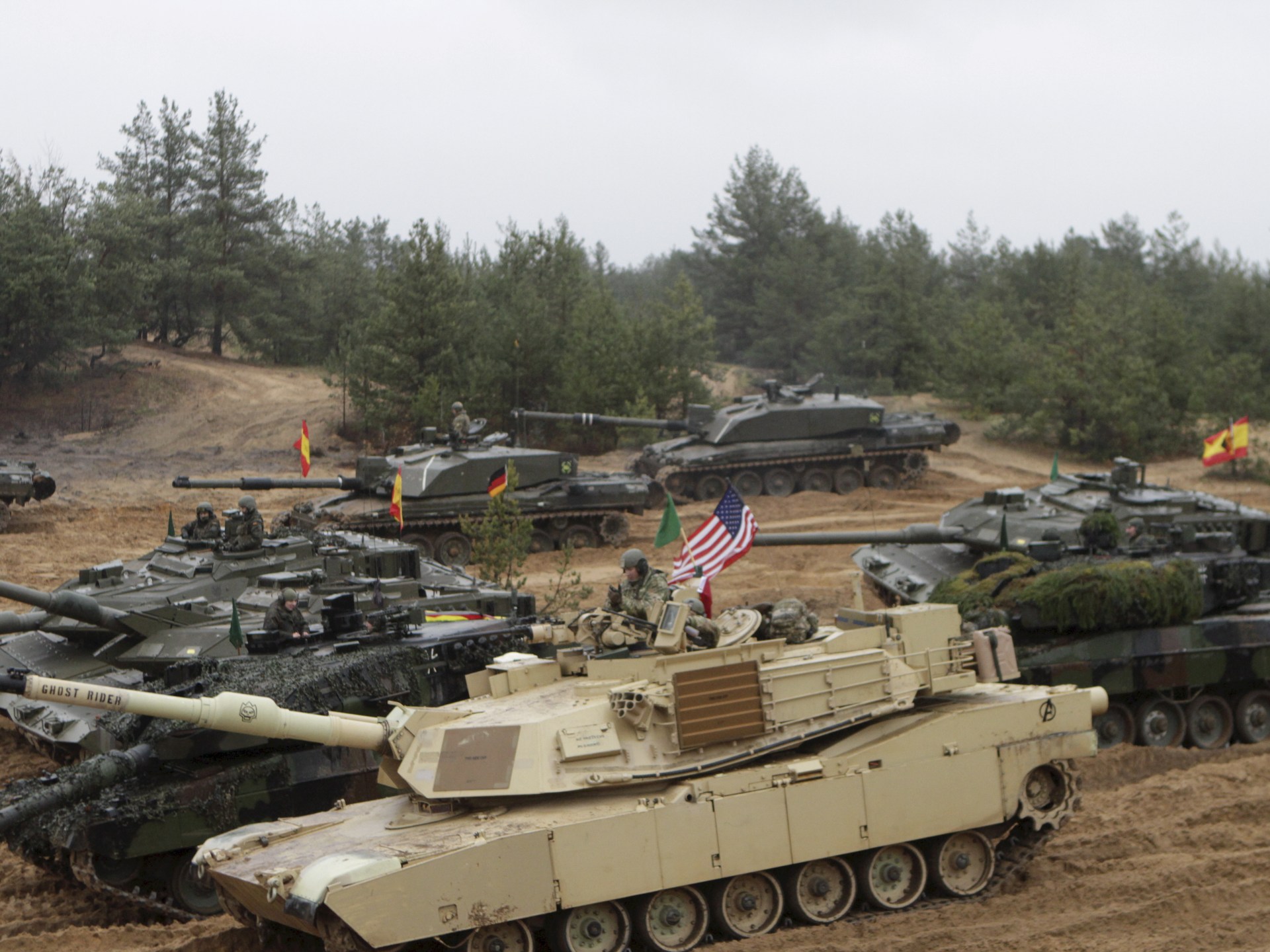Ukraine's allies finally decided to provide it with the German Leopard tanks and the American heavy Abrams tanks that it had been requesting for months, with a German explanation that they were doing what was "necessary" to support Kyiv, and seeking to prevent the "escalation" of the conflict that might lead to a "war between Russia and NATO", but handing over These tanks for Ukraine could change the course of the war and make Kyiv allies and direct partners in the conflict.
In order to shed light on this decision, the French newspaper "Le Monde" analyzed it through 6 questions that start with the countries that will implement it and the quantities that will be sent, depending on the extent of its impact and the consequences that can result from it.
1- Which countries plan to send heavy tanks and in what quantities?
The newspaper pointed out that the United States announced its willingness to deliver about 30 Abrams tanks, and Germany finally committed to handing over 14 Leopard tanks from the stocks of its army (Bundeswehr), and also allowed countries that have Leopard tanks and are ready to hand them over to do so, while London announced the delivery of 14 heavy tanks of the type. "Challenger 2" for the Ukrainian army, while France is studying the possibility of delivering some Leclerc tanks, despite its hesitation.
2- Can these deliveries be decisive in the field?
And the newspaper considered - in its joint analysis between Jean-Philippe Lviv and Sandra Favier - that the announcement of the delivery of heavy tanks to Ukraine constitutes a turning point in international support for Kiev, because these tanks - as NATO Secretary General Jens Stoltenberg said - can To change the course of the war and help the Ukrainians to "victory".
However, the quantities announced so far are still too low to have a real impact on the ground, and their delivery will take time, in addition to the need to train the Ukrainian forces, as former US General Mark Hertling warns of the capabilities of the Ukrainians and the technical knowledge that they must acquire to direct the tanks. And success in maintaining and making it effective.
3. Why did Ukraine's allies take so long to agree to these deliveries?
The newspaper pointed out that the long reluctance of Ukraine's Western allies in supplying it with heavy tanks is due to the fact that it may change the course of the war, and therefore they fear that Moscow will consider this as a direct participation on their part in the war, in addition to that Germany in particular is concerned about its relations with Moscow, and does not want In that its tanks are the only ones provided to Ukraine, and stipulated that the United States also provide heavy tanks.
4- How are these tanks different from the weapons already provided by Ukraine's allies?
Since the beginning of the war, Ukraine has asked to provide it with tanks, and Eastern European countries responded to it and provided it with tanks inherited from the former Soviet Union. Moscow did not see this as a hostile act, but Western tanks are much stronger than that.
The German Leopard tanks, the American Abrams, the French Leclerc, and the British Challenger are called "heavy" tracked tanks, and they are intended for high-intensity combat, and their role is to penetrate the enemy's defenses, because they weigh between 55 and 65 tons and consist of very thick shields that protect them from many attacks.
These tanks are equipped with a large caliber cannon, and can carry between 40 and 55 shells. They are equipped with thermal cameras and can fire accurately at night and at a long distance. At the same time, they collect and transmit information using the on-board computer systems.
5- Can these tank deliveries be considered a form of joint combat?
The newspaper warned that the delivery of military equipment to a country in a state of war does not constitute an act of hostilities in accordance with the law of armed conflict, which is based on several texts, including the Geneva Conventions.
Julia Grenon, an expert in the law of armed conflicts at the Institute for Strategic Research, wrote that financing, equipping, and providing information and training to a state's forces "does not make the state that does so bear the status of a party to an international armed conflict, and therefore a belligerent state." According to Bruno Tartress, deputy director of the Foundation for Strategic Research.
Journalist Marc Simo writes, "The question of whether this action in and of itself constitutes an act of war is not raised, since the law of armed conflict is ambiguous in this area, but it is likely that the Kremlin will interpret it as such."
6- What are Moscow's red lines?
Russian President Vladimir Putin has made it clear that any attempt to impose a no-fly zone - which Kyiv had insisted on before - would be seen as a step towards an armed conflict with "serious consequences for Europe and the world," drawing a red line.
Moscow has also considered international sanctions amounting to a "declaration of war", although it has not acknowledged that it is at war with Ukraine, but is officially just conducting a "special operation".

